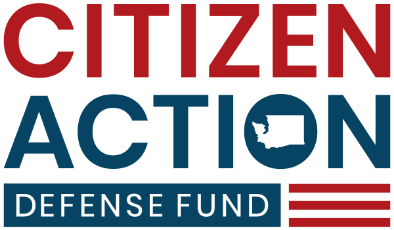In our last two blog posts we discussed several instances of incompetence or malfeasance on the part of our elected and appointed officials. First are zero bail policies across the state that permit criminals (even with CVS-receipt-length rap sheets) to avoid detention or bail on their promise—hopefully at least achieved via pinky-swear—that they will return for their next scheduled hearing. The results, to nobody’s surprise, is mixed at best. Second is the Juvenile Division of the King County Prosecuting Attorney’s Office’s systemic tendency to “divert” juvenile offenders, in lieu of charges, into a rehabilitation program with far-from-stellar success rates—a huge portion of those diverted never even show up for the program. Though these are particularly egregious examples of official misconduct, they are far from alone.
The latest example we wish to highlight is a recent report from the Washington Department of Transportation (“WSDOT”) recommending upwards of half a billion—with a “b”—in new funding to renovate the state’s 47 rest areas. I am neither an architect nor a civil engineer, nor am I an expert in state budgeting. But one needs no such qualifications to understand that allocating an average of $10 million per rest area is unnecessary to upgrade even the most degraded sites.
The report reflects the well-worn—but wholly unsuccessful—big-government practice of unflinchingly and unthinkingly piling on loads of cash and expecting money alone to fix the various social, economic, and infrastructural problems facing Washington and many other states across the country. This approach often comes at the expense of the sort of smart and fiscally responsible solutions we as taxpayers dare to expect. Is it too much to ask for cost-saving to become a pillar of every project-feasibility analysis? No, that would be too difficult—and think of the overtime! Of course, we doubt those overtime costs could exceed the amount the state would end up saving taxpayers if it regularly resorted to real brain-storming instead of the tried-and-untrue throw-the-money-and-run style prevailing among Olympia’s progressive class. This style suits Governor Inslee well—we all know where he, his administration, and his allies in the legislature stand on wasting taxpayer money (spoiler: they love it!). But the rest of us are right to be incredulous with how the state spends our hard-earned cash.
The rest-stop proposal is only the latest in a string of bad—and expensive—ideas emanating from Olympia, Seattle, and anywhere else fiscal insanity sadly prevails. State and local agencies in recent years have been spending like there’s no tomorrow. We hate to break it to any Millerites in our audience, but life on Earth will (almost certainly) survive the day. And so too will the abiding need for smart spending, a method of public budgeting that appears (sadly) to have lost its vogue. Time was, government would consult with all the necessary players before setting a project agenda, and they certainly would consider cheaper options to achieving the same or similar results—what we in the law call “narrowly tailoring” a project’s costs to the need for—and chance of—success. This and more has all been replaced by a spend-first-ask-questions-later attitude that digs us ever deeper into the money pit. Who knows, maybe we end up digging down enough to strike oil. Barring that, the state and local governments must change their entire approach to spending or face fiscal catastrophe. It certainly doesn’t help that the state’s new capital gains tax is set to drive away high-earning taxpayers and businesses in droves. Sooner or later, there won’t be nearly enough tax money for Inslee & Co. to toss around with near impunity.
On that, here are a few of the gang’s latest displays of fiscal abandon. This week, Governor Inslee soft-committed over $900 million for new climate projects, ostensibly to be funded through a carbon tax program that, by some estimates, already costs Washingtonians up to 50 extra cents per gallon pumped. In September, the governor’s office revealed that less than a third of salmon subspecies targeted for replenishment saw numbers improve, despite the one billion already spent (including several grant increases after 2019 totaling 67%). Then there is the $143 million the state government has spent to house just 1,000 or so homeless individuals. And now Inslee is asking for it again. This on top of the one billion Olympia last session approved for more anti-homelessness programs, despite that the money already spent hasn’t made a dent. Climate and homelessness are only two of the myriad policy areas that suffer bad-to-mixed results when dollar figures trump narrow fiscal tailoring. The less policymakers know they have available to spend on a set of projects, the more priority will be given to those that need it most, and in ways that are far more cost-efficient than the money-talks method permits.
Unfortunately, we live in an age where the amount spent on a project stands in for both its import and its likelihood of success. Of course, this is a textbook tautology: “In order to fix a problem, we must spend X dollars; the fact that we must spend X dollars demonstrates that the problem exists as presented.” WSDOT’s rest-stop proposal is only the latest in a string of such circular policymaking, and we have seen the abysmal results. The 500 million that WSDOT has proposed would be egregious on its own. Heaped atop billions in other irresponsible spending and the whole misadventure becomes a case study in how money, by itself, can never be the solution to society’s ailments—and will, in many cases, simply exacerbate things. Policymakers in and beyond Olympia must figure out efficient ways to spend, instead of citing much costlier avenues as proof of a project’s preordained success.
Alki,
Sam Spiegelman

